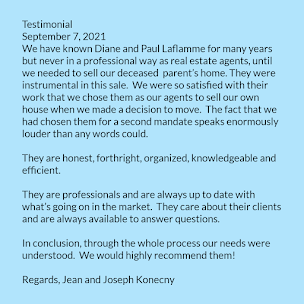Real estate tax: One million American citizens in Canada face double tax troubles
Financial Post, published March 20, 2015
Owning real property on both sides of the border can create a confusing tax situation.
Max Reed, Special to Financial Post | March 20, 2015 | Last Updated: Mar 20 1:21 PM ET
More from Special to Financial Post
More from Special to Financial Post
Matthew Sherwood for National PostOwning property on both sides of the border can create a difficult tax situation.
Owning real property on both sides of the border can create a confusing tax situation.
Consider this example. Stefan and Jane are married and live in Vancouver. Jane is a Canadian citizen while Stefan holds both U.S. and Canadian citizenship. In 1994, shortly after getting married, they bought a house for $250,000 (all figures in U.S. dollars for simplicity’s sake), which they own jointly.
Thanks to the Vancouver housing market, the house is worth $2.25 million. Their increased net worth prompted Jane to buy a condo, in her own name, in Arizona, next to Stefan’s favourite golf course.
Now Stefan and Jane might owe some U.S. tax if they want to sell the house or the condo. Under Canadian tax rules, the sale of their principal residence – their house – is free of capital gains tax (the tax due when an asset you own has appreciated in value and you sell it).
But American rules are different. As a dual citizen, Stefan is subject to both U.S. and Canadian tax rules. In this case, the gain on the house would be $2 million. Stefan’s half of that is $1 million.
Under U.S. tax rules, Stefan is allowed to exclude $250,000 worth of capital gain income from tax. But that leaves $750,000 of capital gain income that is still subject to tax at a top marginal rate of 23.8% (approximately $178,500 of tax due).
This might come as an ugly surprise to Stefan and Jane. Like other couples, they may have thought, correctly under Canadian rules, that the sale of their principal residence was tax free. To plan around the American taxes, Stefan may be able to give his share of the house to Jane prior to the sale – preferably years before the sale – but this will have U.S. gift tax implications.
Stefan’s ownership of the house isn’t the only U.S. tax issue the couple has to grapple with. Jane owns a condo in the U.S. If she sells this condo, she will have to pay both U.S. and Canadian capital gains tax on the sale if it has increased in value since the time she bought it. However, she can use the U.S. tax paid as a credit to offset the Canadian tax on the sale.
American estate taxes for Jane are another potential problem because she is a Canadian who owns U.S. real estate. Because the property is located in the U.S. her estate may be subject to American estate taxes if she still owns the condo when she dies. U.S. rules exempt the first $60,000 of property that Jane owns in the U.S. from American estate tax. The Canada-U.S. Tax Treaty offers further relief that should prevent Jane from owing U.S. estate tax.
If she does have some exposure, there are strategies (including owning the U.S. property through a trust) that Jane can use to reduce her exposure to U.S. estate tax.
Jane and Stefan need to pay careful attention to the tax rules so that their real property doesn’t become a real tax problem.
Max Reed is a cross-border tax lawyer at SKL Tax (www.skltax.com) a U.S.-Canadian tax firm in Vancouver and the co-author (with Dick Pound) of A Tax Guide for American Citizens in Canada. max@skltax.com
Consider this example. Stefan and Jane are married and live in Vancouver. Jane is a Canadian citizen while Stefan holds both U.S. and Canadian citizenship. In 1994, shortly after getting married, they bought a house for $250,000 (all figures in U.S. dollars for simplicity’s sake), which they own jointly.
Thanks to the Vancouver housing market, the house is worth $2.25 million. Their increased net worth prompted Jane to buy a condo, in her own name, in Arizona, next to Stefan’s favourite golf course.
Now Stefan and Jane might owe some U.S. tax if they want to sell the house or the condo. Under Canadian tax rules, the sale of their principal residence – their house – is free of capital gains tax (the tax due when an asset you own has appreciated in value and you sell it).
But American rules are different. As a dual citizen, Stefan is subject to both U.S. and Canadian tax rules. In this case, the gain on the house would be $2 million. Stefan’s half of that is $1 million.
Under U.S. tax rules, Stefan is allowed to exclude $250,000 worth of capital gain income from tax. But that leaves $750,000 of capital gain income that is still subject to tax at a top marginal rate of 23.8% (approximately $178,500 of tax due).
This might come as an ugly surprise to Stefan and Jane. Like other couples, they may have thought, correctly under Canadian rules, that the sale of their principal residence was tax free. To plan around the American taxes, Stefan may be able to give his share of the house to Jane prior to the sale – preferably years before the sale – but this will have U.S. gift tax implications.
Stefan’s ownership of the house isn’t the only U.S. tax issue the couple has to grapple with. Jane owns a condo in the U.S. If she sells this condo, she will have to pay both U.S. and Canadian capital gains tax on the sale if it has increased in value since the time she bought it. However, she can use the U.S. tax paid as a credit to offset the Canadian tax on the sale.
American estate taxes for Jane are another potential problem because she is a Canadian who owns U.S. real estate. Because the property is located in the U.S. her estate may be subject to American estate taxes if she still owns the condo when she dies. U.S. rules exempt the first $60,000 of property that Jane owns in the U.S. from American estate tax. The Canada-U.S. Tax Treaty offers further relief that should prevent Jane from owing U.S. estate tax.
If she does have some exposure, there are strategies (including owning the U.S. property through a trust) that Jane can use to reduce her exposure to U.S. estate tax.
Jane and Stefan need to pay careful attention to the tax rules so that their real property doesn’t become a real tax problem.
Max Reed is a cross-border tax lawyer at SKL Tax (www.skltax.com) a U.S.-Canadian tax firm in Vancouver and the co-author (with Dick Pound) of A Tax Guide for American Citizens in Canada. max@skltax.com






